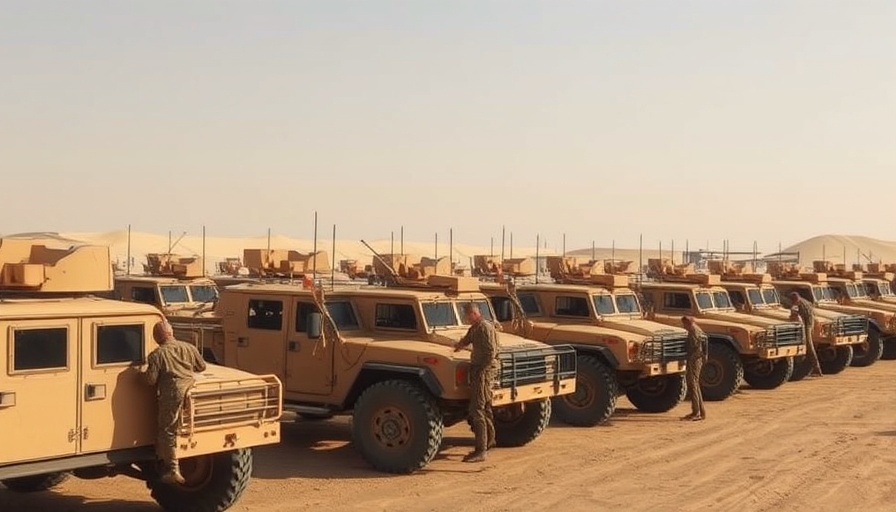
U.S. Marines Deployed in LA: A Response to Immigration Protests
In a highly controversial move, hundreds of U.S. Marines arrived in Los Angeles following orders from President Trump amidst continuing protests regarding immigration policies. This deployment has drawn sharp criticism from local officials, state leaders, and various advocacy groups who perceive it as an authoritarian escalation against primarily peaceful demonstrations.
The protests, which erupted after the Trump administration initiated a series of immigration raids, have raised significant concerns about civil liberties and the right to protest. California Governor Gavin Newsom has argued that the troop deployments were not only unnecessary but also politically motivated, alleging a misuse of military resources to suppress dissent.
When Military Force Meets Protest
The presence of approximately 700 Marines at a staging area in Seal Beach, about 30 miles south of downtown, signals a stark shift in how federal authorities are responding to civilian unrest. The declaration by Trump to deploy additional National Guard troops—4,000 in total—has led many Democratic leaders to warn against the dangers of militarizing the response to domestic protests. Critics argue that the local police may not have even required such military intervention, as the demonstrations had remained largely peaceful.
Public Sentiment and Political Consequences
The political landscape is rapidly shifting as public sentiment grows more polarized. The deployment has spurred not just protests, but also a robust dialogue about the role of the military in civilian affairs. As Los Angeles Mayor Karen Bass contemplates a curfew to manage the unrest, questions regarding the balance of power between federal and state authority come to the fore. (The deployment was sparked by demonstrations that have now spread across other cities, causing a domino effect in political reactions nationwide.)
Future Implications of Military Deployment in Civilian Conflicts
The implications of military presence in civilian protests can be profound, extending well beyond the immediate chaos of the moment. As strategies regarding immigration enforcement continue to evolve within the Trump administration, this situation raises critical questions about constitutional rights, state sovereignty, and the precedents being set for future administrations.
As protests continue, the public may see a growing call for legislative oversight of military actions in domestic situations. With the response from state authorities and the public, it remains to be seen what long-term changes could emerge from this mobilization.
Diverse Perspectives on Immigration Reforms
While protests animate activism on both sides, many members of the public remain divided on the best path forward regarding immigration policies. Some see the recent raids as necessary measures to enforce existing laws, while others view them as an inhumane affront to human rights. Against this backdrop, discussions about more comprehensive reforms in immigration policy are likely to gain momentum as both sides articulate their positions.
Conclusion: A Call for Reevaluation
As the nation grapples with the deployment of military forces against its citizens, it is crucial for voters to reconsider the effectiveness of such measures. Understanding the implications of these actions can guide future discussions and decisions regarding immigration reform, civil liberties, and the proper role of military resources within the United States.
Citizens are urged to remain engaged and informed about developments in these circumstances, as the outcomes could shape policies for years to come.
 Add Row
Add Row  Add
Add 



Write A Comment